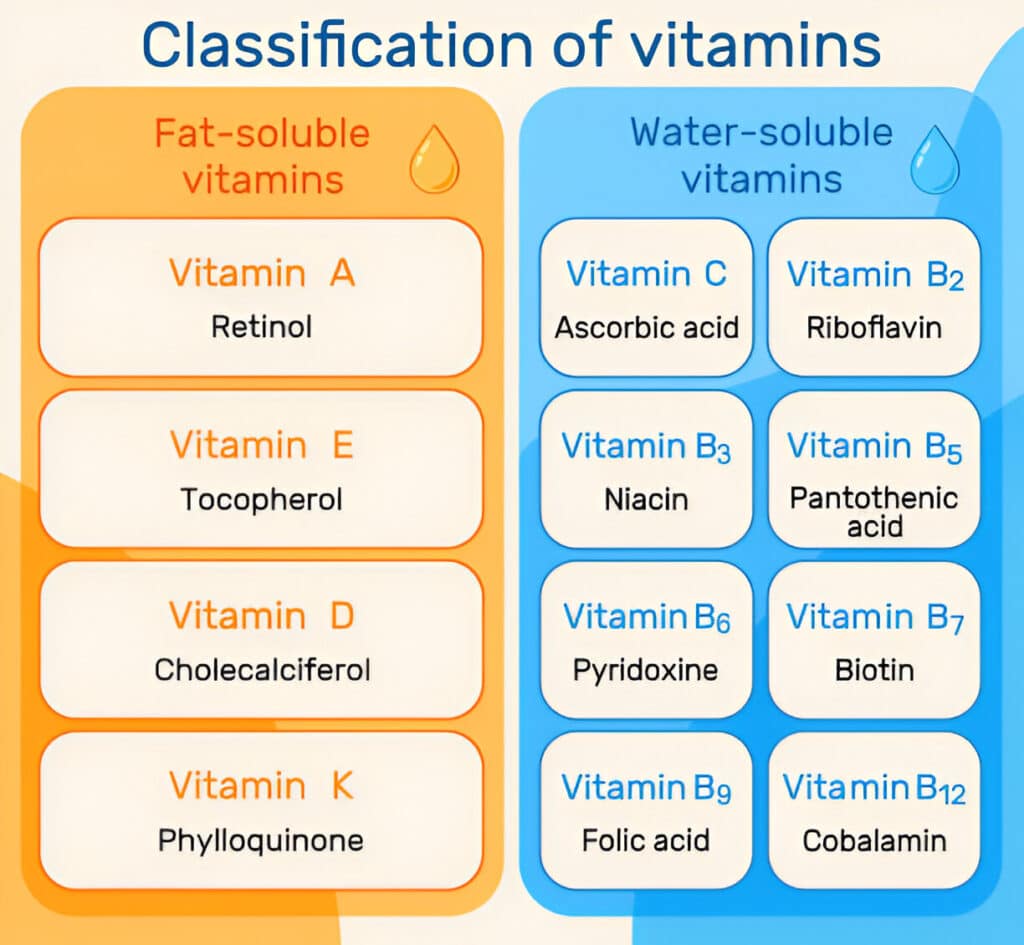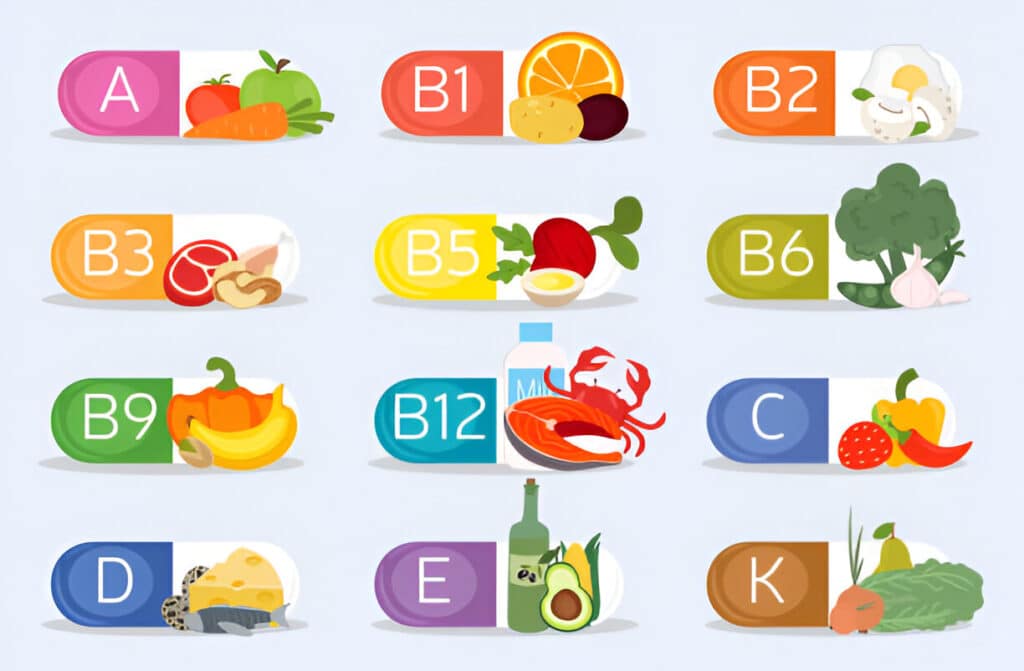If you have started taking vitamins, you probably question, “how long does it take for vitamins to start working?”
Naturally, this is one of the most often asked topics about supplements. We all wish for quick improvement.The truth is, though, It’s different for everyone.
Your present health, the kind of vitamin you take, your food, absorption rate, and even your lifestyle all influence the effects of vitamin supplements. And you’re likely not going to get benefits as quickly as you want if you’re depending just on pills without correcting your diet.
This guide will dissect everything in simple language so you may know what to expect from your supplements and how best to take them.
Fast Information First: Vitamin Chronology Synopsis
| Sort of Vitamin | Notes about Time to Feel Effects |
| The complex of Vitamin B | Between two and three weeks – improves metabolism, mood, and vitality |
| Vitamin D | Four to six weeks – works slowly, particularly in cases of inadequacy |
| Iron | One to two weeks – usually quicker because of energy support |
| Magnesium | One through two weeks – calming effect differs depending on deficiency |
| Multivitamin | Two to four weeks – depends on the components provided |
Note: Always see your doctor before beginning any supplements.
How Long Do Multivitamins Take To Work: What Factors Affect?
1. Your Deficiency Comparatively to Dose
Your body will be more likely to recognise the increase from supplements the more deficient you are.
Within 7–10 days, you might start seeing changes, including more energy, greater focus, or less dizziness if your vitamin B12 or iron levels are severely low.
If your levels are just modestly low, though, the changes may be more subdued and take longer to manifest.
Pro Tip: Never project your shortfall. Get professional counsel and a blood test before augmenting high amounts. Overdoing it could have adverse effects and toxicity.
2. The Nature of Vitamin: Fat-Soluble vs. Water-Soluble

Not every vitamin acts in the body the same way. Mostly, they fall into two categories:
| Vitamin Type | Examples | Absorption & Storage | Time to Work |
| Water-Soluble | B-complex, Vitamin C | Quick; not stored | Quicker (1–3 weeks) |
| Fat-Soluble | A, D, E, K | Slower; stored in body fat | Slower (4–6 weeks) |
Water-soluble vitamins are taken straight into your bloodstream and flushed out fast. Their benefits grow over time.
Fat-soluble vitamins require dietary fat to be absorbed and are more likely to be harmful when taken in excess.
Note: Always obey dosage recommendations.
3. Your Diet: No Magic Fix from Supplements
Supplements should enhance, not replace, a good diet. A poor diet may block or slow vitamin absorption.
- Vitamin D requires fat for absorption—skipping fats lowers its potency.
- Iron is best absorbed with Vitamin C (e.g., drink orange juice with your iron pill).
Vitamin Absorption Boosters
| Vitamin | Works Better With |
| Iron | Vitamin C (e.g., citrus fruits) |
| Vitamin D | Good fats (e.g., avocado, nuts) |
| Calcium & B12 | Adequate stomach acid |
Few people talk of food synergy match supplements to foods that improve absorption for best effects.
4. Affects Form and Quality
The quality and formulation of your supplement significantly influence outcomes.
Look for:
- High bioavailability (e.g., chelated magnesium, methylated B12)
- Third-party certifications (USP, NSF)
- Minimal fillers and additives
- Liquid, spray, or softgel forms (faster acting than tablets)
Professional Knowledge:
Liquid and spray forms of vitamin D caused faster blood level increases than pills, according to a Journal of Clinical Pharmacology study.
5. Lifestyle Choices: Alcohol, Cigarette, Stress
Unhealthy lifestyle choices may hasten vitamin depletion or interfere with absorption:
- Alcohol affects magnesium and B-complex vitamins.
- Smoking depletes vitamin C.
- Chronic stress drains B-complex and vitamin D.
If you’re still feeling fatigued despite supplements, your lifestyle may be the cause.
6. Medical Disorders and Gastric Issues
Health issues like IBS, Crohn’s, or coeliac disease impair absorption in the intestines.
Low stomach acid in elderly people also hampers absorption of iron, calcium, and B12.
Bariatric surgery patients may require lifelong supplementation.
How To Find Out Whether Your Vitamins Are Effectively Working

Test Both Pre- and Post-Blood
Ask your doctor for tests prescription:
| Nutrient | Test Name |
| Vitamin D | 25 (OH)D blood test |
| B12, Iron | Ferritin, Haemoglobin |
| Magnesium | RBC Magnesium Test |
Re-test in 8–12 weeks after beginning supplements.
Track Signs and Symptoms With a Journal
Start a 30-day journal. Track:
- Energy levels
- Mood
- Sleep quality & dreams
- Digestion
- Skin, hair, and nails
Check trends of improvement at the end of the month.
Track Physical Indicators
| Vitamin | Visible Signs of Improvement |
| B-Complex | Better mood, focus, energy |
| Vitamin D | Stronger immunity, less fatigue |
| Iron | Less dizziness, improved stamina |
| Biotin | Healthier nails, skin, and hair |
| Magnesium | Better sleep, reduced cramps and tension |
Should You Not Find Any Success?
If after 8–12 weeks there’s no improvement:
- Consult a medical professional
- Adjust form/dosage
- Check for absorption issues
- Improve your diet
- Switch to certified or higher quality supplements
Not all old stories are true.
| Myth | Reality |
| You’ll feel better in a few days | Most vitamins take 2–8 weeks to work |
| Everyone needs multivitamins | Not all nutrients are needed by every person |
| Supplements can replace a healthy diet | Diet is still the foundation of health |
| Higher doses = faster results | High doses can be toxic. Stick to RDA or medical advice |
Ultimately, Be Thoughtful and Patient
How Long Does It Take For Vitamins To Take Effect?
Usually, depending on factors, you will start to observe effects in 2 to 8 weeks.
Consider:
- Your degree of deficiency
- The kind and quality of supplements
- Your diet and digestive health
- Your consistency
- Medical or lifestyle factors
Don’t expect overnight miracles.
Allow your body to rebalance, heal, and adapt. Choose good-quality products, stay consistent, and sync your supplement plan with your food and lifestyle.
FAQs About Vitamin Supplement Timing
Q1: Right after I take vitamins, can I feel them?
- Sometimes, especially if deficient in iron or B12, you may feel better in a few days. Most vitamins take weeks to show effects.
Q2: Among vitamins, which absorbs fastest?
- Liquids and sublingual sprays generally absorb faster than tablets.
Q3: Should vitamins be taken on an empty stomach?
- Water-soluble (B, C) – Yes.
- Fat-soluble (A, D, E, K) – Take with fat-rich meals.
Q4: How long should I be taking vitamins?
- You can continue under professional guidance. Review every 3–6 months.
References
- Harvard Health Publishing. How your body absorbs vitamins
- NIH Office of Dietary Supplements. Nutrient Fact Sheets
- Mayo Clinic. Vitamin Deficiency Diagnosis
- Cleveland Clinic – What to Know About Multivitamins
- Journal of Clinical Pharmacology – Absorption rates of Vitamin D forms
Need help selecting the right supplements?
See a licensed dietitian or certified nutritionist.
And always remember: vitamins are helpful tools, but work best when combined with a healthy lifestyle and balanced diet.



